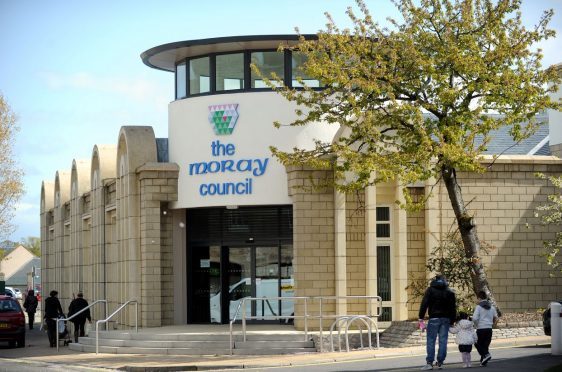The repair bill to make Moray’s crumbling school estate fit for purpose has now topped £150million
The news emerged as the council revealed dozens of residents across the region are now demanding shutting or merging rural classrooms.
More than 5,000 people took part in a lengthy budget consultation with the authority about ways to trim £12million from the accounts.
Now, in feedback published by the council, it has become clear some locals want to see schools closed to help balance the books.
Last night, Moray Council leader George Alexander said that explaining the perilous financial situation to parents had opened their eyes to the problems facing education in the area.
He added: “The report says it was an emotive topic, it certainly was – but I would like to see the emotion taken out of it and talk about it as you would any other service.
“A lot of people will never waver from wanting to keep their local school, but when you explain it rationally to some people, it does make them appreciate the benefits for the kids.
“A lot of the schools were opened when the rural population was much larger. It just doesn’t work now. We need fewer but better schools.”
During the consultation, some parents revealed they were willing to forego free lunches for their children in order to help save money.
However, council officers explained the authority is duty-bound to make the meals accessible to all by the Scottish Government, regardless of family income.
Other suggestions to save money from residents included sending less paperwork home with pupils and giving head teachers greater control over budgets.
In a report, Moray Council declared that dozens of residents across the region were coming forward to ask for schools to be shut.
A spokesman explained it was inevitable that a review of education would have to be done in the “near future”.
He said: “Reviewing the school estate was an emotive topic. 71 comments were received suggesting either closing schools, or amalgamating schools with small rolls. 17 comments were received asking to keep schools open, mainly smaller, rural ones, and three comments were received suggesting opening new schools.
“Four suggestions were received asking parents with children at school to contribute more towards schooling, including paying for books and materials, or suggesting a ‘pay to attend’ policy for parents who have applied for places at a non-local school.”
